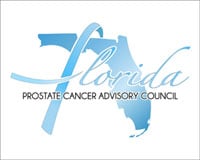Prostate Cancer Causes and Risk Factors
Prostate cancer is common, affecting more than three million men worldwide each year. The tumors develop in the prostate, a walnut-shaped gland located below the bladder and in front of the rectum in males. This tiny gland secretes fluid that mixes with semen to help keep the sperm healthy for conception and pregnancy.
Prostate tumors tend to grow slowly and remain confined to the prostate. In many cases, the cancer is detected early, when it can be effectively treated and often cured.

What causes prostate cancer?
Scientists do not yet fully understand what causes prostate cancer, although they have identified several factors that can contribute to its development. Through ongoing research, they continue to investigate which factors have the greatest impact and how those factors cause prostate tumors to develop.
Prostate cancer gene mutations
On a basic level, scientists have confirmed that prostate cancer results from harmful DNA changes in prostate cells. DNA carries the genetic instructions for cellular development, function, growth and reproduction. A gene is a strand of DNA that contains a set of instructions for one specific molecule in the body, usually a protein. A gene mutation can cause or allow a cell to grow uncontrollably and form a tumor.
Inherited gene mutations
Some gene mutations are passed from parent to child. Scientists believe that inherited gene mutations contribute to the development of up to 10% of prostate cancers.
Hereditary prostate cancer can result from harmful mutations in:
Breast Cancer Gene 1 (BRCA1) and Breast Cancer Gene 2 (BRCA2)
BRCA1 and BRCA2 are tumor suppressor genes that normally repair damaged DNA. If the damage is irreparable, the tumor suppressor genes cause the cell to die. While inherited mutations in BRCA1 and BRCA2 are more commonly associated with breast and ovarian cancers, they also account for a small number of prostate cancers.
DNA Mismatch Repair Genes
Cells reproduce by dividing. Whenever a cell divides, it must replicate its DNA to create an identical new cell. The new cell must have a complete and correct copy of the genetic information that codes and instructs its cellular operations.
Sometimes, an error occurs during the DNA replication process. These copying errors, or gene mutations, can sometimes have harmful effects that lead to the development of cancer.
There are natural cellular mechanisms that attempt to compensate for such mistakes. For instance, tumor suppressor genes—such as MSH2, MSH6, MLH1 and PMS2—normally repair DNA mismatches that occur during the cell division process.
Males who inherit a mutation in MSH2, MSH6, MLH1 or PMS2 have a condition called Lynch syndrome. Also known as hereditary non-polyposis colorectal cancer (HNPCC), Lynch syndrome increases the risk of prostate, colorectal and other cancers.
Homeobox B13 (HOXB13)
HOXB13 is a tumor suppressor gene. Currently, there is one known HOXB13 mutation that increases the risk of prostate cancer. The mutation is relatively rare.
Scientists believe 30 to 60 in 100 men who have the HOXB13 gene mutation will develop prostate cancer during their lifetime. In these men, prostate cancer tends to occur at a younger age than it does in men who do not have the HOXB13 gene mutation.
Ribonuclease L (RNASEL)
Formerly known as HPC1, the RNASEL enzyme is part of a regulated pathway of molecules that helps protect cells from viral infection. When the body detects an infection, certain proteins (interferons) stimulate the immune system to fight it. In addition, the interferons activate the RNASEL pathway, increasing the level of the enzyme in the cell. The enzyme then either destroys genetic information associated with the virus or causes the infected cell to die.
Research suggests that a harmful RNASEL mutation can interfere with its function. As a result, the enzyme may fail to cause an infected cell to die. Instead, it may grow uncontrollably and form a prostate tumor.
Acquired gene mutations
Most gene mutations associated with prostate cancer are not inherited; instead, they are acquired during a man’s lifetime. For instance, when a cell divides, a random error may occur during the DNA replication process, leaving defective DNA in the new cell.
In general, the more quickly a prostate cell grows and divides, the more likely a DNA mutation may occur. Therefore, any factor that accelerates the cell division process can increase the risk of prostate cancer. For example, male hormones (androgens), such as testosterone, promote prostate cell growth. As such, a high level of androgens may contribute to the development of prostate cancer risk in some men.
What are the risk factors for prostate cancer?
Although the precise causes of prostate cancer are not yet fully understood, scientists have conclusively linked several factors to its development. Some prostate cancer risk factors cannot be controlled, such as:
- Advanced age - Most cases are diagnosed after age 45, and the risk increases with age.
- A family history of prostate cancer - If a man has a first-degree relative (father, brother or son) who developed prostate cancer, he is more likely to develop the condition himself.
Other prostate cancer risk factors are lifestyle related and can be controlled, such as:
- Poor nutrition - Consuming an unhealthy diet that is high in processed meats and saturated fats and low in fruits and vegetables can increase the risk of prostate cancer.
- Obesity - Overweight men are at risk for developing aggressive forms of prostate cancer.
- Smoking - Tobacco use has long been confirmed to directly contribute to the development of many types of cancer, including prostate cancer.

Frequently asked questions about prostate cancer causes, risk factors and prevention
Prostate cancer is a complex condition. Although you can learn a lot about it on your own, your best source of current, accurate and individualized information is an experienced physician who is familiar with your health condition. For instance, if you have already been diagnosed with prostate cancer, your treatment team can give you the best idea of what to expect by taking into account many unique factors, such as your medical history and the cellular makeup of your tumor.
With that said, the following FAQs can enhance your general understanding of prostate cancer causes, risk factors and prevention:
- Does testosterone replacement therapy increase the risk of prostate cancer?
- Prostate cancer prevention
- What is the best diet for prostate cancer?
Benefit from world-class care at Moffitt Cancer Center
Moffitt Cancer Center has a dedicated team of researchers and physicians who are working tirelessly to expand the knowledge base about prostate cancer. Through ongoing research studies, we continue to learn more about how the condition develops and spreads. We also have a robust portfolio of clinical trials through which our patients can be among the first to benefit from promising new treatment options that are not yet available in other settings. Our commitment to advancing cancer treatment through groundbreaking research has earned us recognition from the National Cancer Institute in the form of a Comprehensive Cancer Center designation.
If you would like to learn more about prostate cancer causes and risk factors, you can talk with a specialist in our renowned Urologic Oncology Program with or without a referral. To request an appointment, call 1-888-663-3488 or submit a new patient registration form online.
Diagnosis
